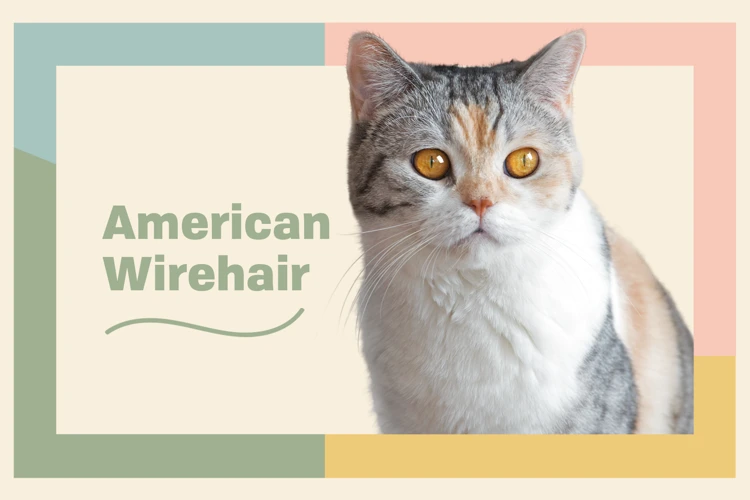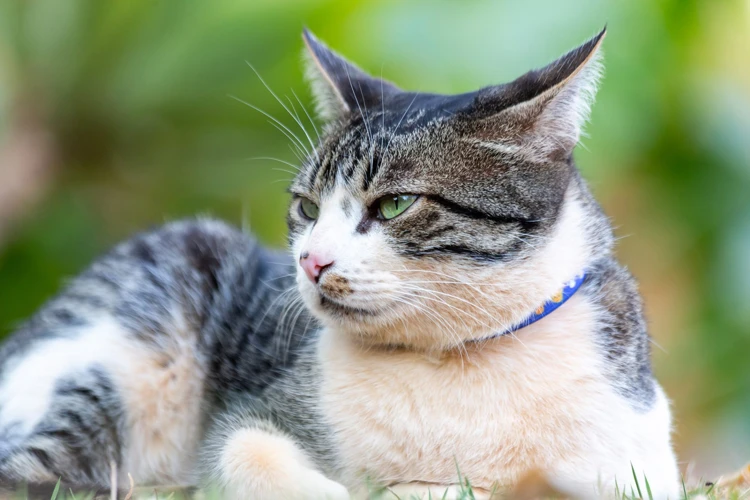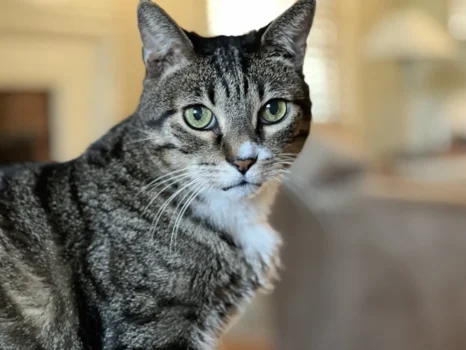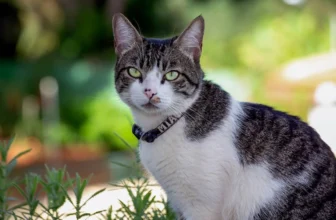Welcoming a new litter of American Wirehair kittens into your home can be an exciting and joyous occasion. However, it’s important to remember that with these adorable furballs comes a great responsibility. As a pet parent, it’s essential to ensure the health and wellbeing of your little ones. This involves understanding the American Wirehair breed, common health issues that affect them, as well as prevention measures that can be taken to keep them in top shape. In this detailed guide, we will cover step-by-step ways to ensure the health of your Wirehair litter, from maintaining a clean living environment to handling health issues when they arise.
Understanding the American Wirehair Breed

As a Wirehair cat owner, it’s important to understand the characteristics and needs of this unique breed. American Wirehairs are known for their wiry and crimped coats, friendly personalities, and independent nature. Understanding the specific traits of the Wirehair breed can help you provide the best care for your furry friend. In this section, we will explore the physical characteristics and temperament of American Wirehairs, common health problems they may face, and preventive measures that can ensure their optimal health. To learn more about caring for newborn Wirehair kittens, feeding practices, and preparing your home for their arrival, check out our links to relevant articles.
Physical Characteristics and Temperament of American Wirehairs
Physical Characteristics of American Wirehairs:
The American Wirehair breed, which first appeared in upstate New York in the 1960s, has unique physical characteristics that distinguish it from other cat breeds. Wirehairs have a medium-sized, muscular body with a broad, rounded head and a short, thick, wiry coat that resembles steel wool. Their coat comes in various colors and patterns, including tabby, solid, and bicolor. Wirehairs have round, wide-set eyes that range in color from gold to green.
Here’s a table summarizing the physical characteristics of American Wirehairs:
| Body Type | Medium-sized with a muscular build |
| Coat | Short, thick, and wiry |
| Colors and Patterns | Tabby, solid, bicolor |
| Eyes | Round and wide-set, gold to green in color |
Temperament of American Wirehairs:
American Wirehairs are known for their playful and affectionate nature, making them ideal pets for families with children or other pets. They are intelligent and curious, always exploring their surroundings and seeking attention from their human companions. Wirehairs are generally easygoing and adapt well to different living situations, but they can become bored and destructive if left alone for extended periods.
American Wirehairs are friendly and loving cats that thrive on human interaction. If you’re considering adding a Wirehair to your family, be sure to provide them with plenty of playtime and affection to keep them happy and healthy.
If you want to learn more about caring for newborn Wirehairs or preparing your home for Wirehair kittens, check out these helpful resources:
– Newborn Wirehair Care Tips
– Preparing Your Home for Wirehair Kittens
Common Health Problems in American Wirehairs
American Wirehairs are generally healthy cats with a lifespan of 12-16 years. However, like any other breed, they are prone to several health issues. Hypertrophic Cardiomyopathy (HCM) is one such health problem that American Wirehairs might experience. This condition is known as an enlarged heart and can cause sudden death if not treated properly. Bladder stones are another common problem in American Wirehairs, which can cause discomfort and pain if left untreated. Other health problems that can occur in American Wirehairs are:
- Dental issues: Wirehairs are prone to periodontal disease, which can cause tooth and gum infections and even tooth loss. Regular dental check-ups and cleaning can help maintain good dental health.
- Eye problems: Some Wirehairs may experience eye problems like conjunctivitis, cataracts, and glaucoma. Early detection and treatment are vital to prevent permanent damage to the eyes.
- Skin allergies: American Wirehairs may develop skin allergies due to environmental factors or food. Symptoms may include skin inflammation, itching, and hair loss. Switching to hypoallergenic food, using natural remedies, and avoiding environmental triggers can help alleviate these symptoms.
- Respiratory infections: Like all cats, Wirehairs are susceptible to respiratory infections like upper respiratory infections, asthma, and bronchitis. Early detection and proper treatment can help prevent complications and long-term health problems.
- Obesity: American Wirehairs have a tendency to gain weight, which can lead to obesity-related health problems like heart disease, arthritis, and diabetes. Proper nutrition and feeding practices and regular exercise can help maintain a healthy weight.
As a responsible Wirehair owner, it’s important to be aware of these common health problems and take preventive measures to ensure the optimal health of your cats.
Preventive Measures to Ensure Optimal Health
Taking preventive measures is essential in ensuring the optimal health of your American Wirehair litter. Here are some of the actions you can take to keep your kittens healthy:
- Regular check-ups: Take your kittens to the vet for regular check-ups to detect and prevent any health issues early on. Consult a vet who has experience with American Wirehairs for the best results. Read our vet visit tips article for more information.
- Vaccinations and deworming: American Wirehair kittens require a series of vaccinations and deworming treatments to protect them against common diseases and parasites. Follow a vet-approved vaccination and deworming schedule to ensure complete protection. Learn more about this in our vaccination and deworming article.
- Healthy breeding practices: Breed only healthy American Wirehairs with no genetic health problems. Use our breeding kit guide for more information about breeding healthy kittens.
- Hygiene and sanitation: Maintain a clean and safe environment for your kittens. Keep their bedding, litter box, and feeding area clean and sanitized. This will help prevent the spread of harmful bacteria and viruses that can cause illness. Learn more about keeping your kittens’ environment clean in our article about newborn Wirehair health.
- Proper nutrition: Feed your kittens with high-quality, vet-approved food to support their growth and development. Provide fresh and clean water at all times. Learn about proper feeding practices in our article about Wirehair kitten stages.
- Socialization: Socialize your kittens early on by exposing them to various experiences, sounds, and people. This will help them develop into confident and well-adjusted cats. Learn about socializing your kittens in our article about happy Wirehair kittens socialization.
By taking these preventive measures, you can ensure the optimal health of your American Wirehair litter and enjoy their playful, affectionate, and curious personalities to the fullest.
General Tips to Keep Your Wirehair Litter Healthy

Ensuring the health of your wirehair litter requires more than just vet visits and vaccinations. As a responsible pet owner, you need to take proactive measures to create a clean and safe environment for your kittens to grow up in. It’s also important to establish good hygiene and grooming habits from a young age, as well as providing proper nutrition and implementing safe feeding practices. In this section, we’ll cover some general tips to help you keep your wirehair litter healthy and happy.
Maintaining a Clean and Safe Environment
One of the most important things you can do to ensure the health of your Wirehair litter is to maintain a clean and safe environment for them to live in. This means taking steps to minimize the risk of illness and injury, and keeping their living space free from pests and other hazards.
Regular Cleaning
One of the simplest ways to maintain a clean environment for your Wirehair kittens is to clean their living space regularly. This means removing any feces or urine from litter boxes daily, and washing food and water dishes on a regular basis. You should also vacuum or sweep up any hair or debris that accumulates in their living space.
Sanitizing Surfaces
In addition to regular cleaning, it’s important to periodically sanitize surfaces in your Wirehair litter’s living space to help prevent the spread of germs. Use a pet-safe disinfectant to wipe down floors, walls, and other surfaces in their living area.
Disease Prevention
Another important way to maintain a clean and safe environment for your Wirehair litter is to prevent the spread of disease. This means keeping your kittens up-to-date on their vaccinations, and limiting their exposure to other animals that may be carriers of disease. You should also wash your hands thoroughly before and after handling your kittens, and avoid handling other animals before handling your Wirehairs.
Pest Control
Finally, it’s important to take steps to control pests in your Wirehair litter’s living space. This means using pet-safe pest control measures to eliminate fleas, ticks, and other pests that can cause illness or discomfort for your kittens. You should also regularly check your kittens for signs of infestation, such as scratching or biting, and consult with your veterinarian if you suspect your litter has a pest problem.
| Steps to Maintain a Clean and Safe Environment |
|---|
| 1. Clean litter boxes daily to prevent the buildup of waste. |
| 2. Wash food and water dishes on a regular basis to minimize the risk of illness. |
| 3. Vacuum or sweep up hair and debris in your litter’s living area regularly. |
| 4. Sanitize surfaces periodically to prevent the spread of germs. |
| 5. Keep your kittens up-to-date on their vaccinations to prevent the spread of disease. |
| 6. Avoid handling other animals before handling your Wirehairs to prevent the spread of disease. |
| 7. Use pet-safe pest control measures to prevent infestations and eliminate fleas and ticks. |
Regular Vet Visits and Vaccinations
It is important to ensure that your wirehair litter is up to date on all necessary vaccinations and receives regular checkups from a qualified veterinarian to maintain optimal health. Here are some reasons why regular vet visits and vaccinations are crucial for your wirehair litter:
- Preventive Care: Regular visits to the vet can help prevent potential health problems before they become more serious issues. Vaccinations can protect your wirehair litter from serious and potentially life-threatening diseases such as feline leukemia, feline herpesvirus, and feline calicivirus.
- Early Detection: Early detection and treatment can make a huge difference in the outcome of many health issues. Regular checkups can help detect health conditions such as dental disease, heart disease, and kidney disease in their early stages, when they are more easily treatable.
- Healthy Development: During regular checkups, the vet can monitor the growth and development of your wirehair litter, ensuring they are meeting their milestones and growing at a healthy rate.
- Customized Care: Each wirehair kitten is unique and may have specific needs when it comes to their health care. Regular visits to the vet allow for customized care tailored to the individual needs of each kitten.
- Compliance with Local Laws: Some states require certain vaccinations for cats. Regular vet visits ensure that your wirehair litter is up to date on all necessary vaccinations and complies with local laws.
To ensure the health of your wirehair litter, schedule regular checkups with a veterinarian and keep track of their vaccination schedules. Your veterinarian will provide guidance and recommendations on how frequently your wirehair litter should receive checkups and vaccinations based on their unique needs. Always follow their advice to ensure the best possible care for your furry friends.
Proper Nutrition and Feeding Practices
To ensure the optimal health of your wirehair litter, proper nutrition and feeding practices are crucial. Follow these guidelines to make sure your kittens are getting the right nutrients to grow strong and healthy:
- Choose High-Quality Kitten Food: Pick a high-quality kitten food that is nutritionally complete and balanced for your wirehair litter. The food should be age-appropriate and provide all the necessary vitamins and minerals to support your kittens’ growth and development.
- Feed Small Meals Throughout the Day: Feed your wirehair kittens small, frequent meals throughout the day instead of one or two large meals. This helps to prevent overfeeding and ensures that your kittens are getting a consistent supply of nutrients throughout the day.
- Monitor Portion Sizes: Be careful not to overfeed your kittens. Overfeeding can lead to obesity, which can cause other health problems such as joint pain and diabetes. Monitor your kittens’ portion sizes and adjust accordingly based on their growth and activity levels.
- Provide Fresh Water: Make sure your wirehair kittens have access to fresh, clean water at all times. Change their water frequently throughout the day to ensure that it is clean and free from bacteria.
- Avoid Giving Table Scraps: Avoid feeding your kittens table scraps or human food, as this can upset their stomachs and cause digestive issues. Stick to a high-quality kitten food and avoid giving them foods such as chocolate, onions, or grapes, which can be toxic to cats.
- Introduce New Foods Slowly: When introducing new foods to your wirehair kittens, do so slowly and gradually to prevent digestive upset. Introduce one new food at a time and monitor your kittens’ reactions to it before introducing another new food.
- Consider Feeding Wet Food: Consider feeding your wirehair kittens wet food instead of dry food. Wet food contains more moisture, which can help prevent urinary tract problems and keep your kittens hydrated.
By following these proper nutrition and feeding practices, you can help ensure the health and well-being of your wirehair litter. Remember to always consult with your veterinarian for specific feeding recommendations and if you have concerns about your kittens’ growth and development.
Hygiene and Grooming Habits
Maintaining excellent hygiene and grooming practices for your American Wirehair litter provides numerous benefits to their health and overall wellbeing. Here are some essential tips on how to ensure excellent hygiene and grooming practices for your Wirehair litter:
- Regular baths: Although American Wirehairs have a dense and resilient coat, they still require regular baths to keep their fur clean and tangle-free. Use gentle cat shampoos that are specifically formulated for kittens, and be sure to rinse thoroughly to avoid any residues that may irritate your kittens’ skin.
- Brushing their fur: Brushing your Wirehairs’ coat every day is crucial to prevent matting and tangling. Use a high-quality brush that can penetrate their dense coat to remove any loose fur and debris. Brushing also stimulates blood circulation and natural oil production, ensuring that your kittens’ coat remains shiny and healthy.
- Cleaning their ears: Wirehairs have floppy ears that can hold onto ear wax and debris, which can lead to infections. Use a soft damp cloth to clean their ears gently and avoid using cotton buds, which can damage their delicate ear canal.
- Clipping their claws: Clipping your Wirehairs’ claws can help prevent overgrowth, which can lead to discomfort and paw injuries. You can use a high-quality cat nail clipper to trim their claws regularly, being careful not to cut into the quick, which can cause bleeding and pain.
- Oral hygiene: Dental health is as crucial to kittens as it is to adult cats. Introduce your Wirehairs to a regular oral hygiene routine early on, such as using specially formulated kitten toothpaste and a soft-bristled toothbrush. This way, they’ll grow accustomed to the habit, and you can prevent dental problems down the line.
Following these hygiene and grooming practices not only helps prevent health issues in your Wirehair litter but also strengthens the bond between you and your kittens. Regular grooming sessions are an excellent opportunity for you to interact with your pets, show them affection, and ensure that they’re healthy and happy.
Handling Health Issues in Your Wirehair Litter
When it comes to raising a litter of American Wirehair kittens, health issues are inevitable. While preventing illness and ensuring optimal health should be a top priority, it’s important to be prepared to handle any health concerns that may arise. It can be overwhelming and perplexing to navigate the world of cat health, but with the right information and resources, you can be equipped to properly handle any issues that come your way. In this section, we will discuss how to identify signs of illness in wirehair kittens, first aid measures for common health problems, when to seek veterinary help, and common medications for wirehairs. Let’s dive in and learn how to tackle any health issues that may arise with your wirehair litter.
Identifying Signs of Illness in Wirehair Kittens
As a responsible pet owner, it’s crucial to keep a close eye on your wirehair litter for any signs of sickness. Here are some common symptoms that may indicate your kitten is feeling under the weather:
- Lack of Appetite: If your wirehair kitten is refusing food or water for more than a day, it could be a sign of an underlying health issue.
- Unusual Lethargy: A sudden decrease in energy levels or a lack of interest in playtime could be an indication that your wirehair kitten is feeling unwell.
- Coughing or Sneezing: Persistent coughing or sneezing could be a sign of a respiratory infection or other respiratory condition.
- Vomiting or Diarrhea: These symptoms could indicate an array of illnesses in kittens and warrant immediate attention from a veterinarian.
- Changes in Urination: If your wirehair kitten is not urinating or experiencing pain during urination, it could be a sign of a urinary tract infection, bladder stones, or other medical issue.
- Scratching, Licking, or Biting: If you notice your wirehair kitten excessively grooming a certain area of their body, it could be a sign of an infection, fleas, or other skin issues.
- Abnormal Discharge: Any discharge from the nose, eyes, or ears is not normal and could indicate an infection or other health issue.
- Fever: A kitten with a high fever is a clear sign that they are fighting off an infection.
It’s essential to notice changes in your wirehair kitten’s behavior or physical condition and take action to address any unusual symptoms. Remember that prevention is always better than cure, so a good diet, clean environment, and routine vet checkups will go a long way to keep your wirehair litter healthy and happy.
First Aid Measures for Common Health Problems
It’s important to be prepared in case your wirehair litter experiences any common health problems. Here are some first aid measures that you can take to address common problems:
- Vomiting and Diarrhea: If your wirehair kitten is vomiting or has diarrhea, it’s important to keep them hydrated. Offer small amounts of water and a bland diet of boiled chicken and rice. You can also give them a probiotic supplement to help restore their gut health.
- Eye Infections: If you notice discharge or redness in your wirehair kitten’s eyes, gently clean them with a damp cloth. You can also apply a warm compress to the affected eye to help reduce swelling. If the infection persists or worsens, seek veterinary care.
- Ear Infections: If your wirehair kitten is shaking their head or scratching at their ears, they may have an ear infection. Gently clean their ear with a cotton ball and a vet-recommended ear cleaner. You can also offer a natural remedy like coconut oil, which has anti-fungal and anti-bacterial properties. If the infection doesn’t improve, contact your veterinarian.
- Cuts and Wounds: If your wirehair kitten has a cut or wound, clean it with a saline solution and apply an antibiotic ointment. Bandaging may be necessary to prevent your kitten from licking or aggravating the wound. If there is excessive bleeding or the wound is deep, seek veterinary care.
- Respiratory Infections: If your wirehair kitten is coughing or sneezing, it may be a sign of a respiratory infection. Keep them warm and comfortable, and offer plenty of water. You can also diffuse eucalyptus oil, which can help relieve congestion. If the infection persists or worsens, contact your veterinarian.
While these first aid measures can help alleviate common health problems in wirehair kittens, it’s important to always seek veterinary care if you’re uncertain or the problem persists. By staying vigilant and proactive, you can help ensure the health of your wirehair litter.
When to Seek Veterinary Help
As a responsible pet owner, it is important to know when it is necessary to seek veterinary help for your wirehair litter. Ignoring signs of illness in your kittens can lead to serious health problems or even death. Here are some common situations when you should consider taking your wirehairs to the vet:
| Situation | Why It’s Important to See a Vet |
|---|---|
| Loss of Appetite | A lack of interest in food can indicate a serious health issue, such as an infection or obstruction in the digestive system. Your vet can help diagnose the underlying problem and recommend the appropriate treatment. |
| Difficulty Breathing | labored breathing can be a sign of respiratory infections and other serious illnesses. It is important to have your kittens examined to determine the cause and receive treatment. |
| Lethargy or Weakness | If your wirehairs appear unusually tired or weak, they may be suffering from anemia, kidney disease, or another serious condition. A vet can run tests to determine the cause and prescribe necessary medications or treatments. |
| Dehydration | Signs of dehydration, such as dry mouth, sunken eyes, and reduced skin elasticity, can be an indication of a serious underlying illness. Your vet can assess the degree of dehydration and recommend an appropriate course of treatment. |
| Vomiting or Diarrhea | Continuous Vomiting or diarrhea can be a sign of liver disease, intestinal parasites, or other health problems that require medical attention. |
| Unusual Behavior or Symptoms | If you observe any strange or abnormal behavior in your wirehairs such as seizures, uncontrolled shaking, or excessive drooling, it is important to take them to the vet immediately. Such symptoms can indicate neurological problems or poisoning, which require immediate medical attention. |
Remember, early detection is key to managing and treating any health problems in your wirehair litter. If you suspect your kittens are unwell, schedule an appointment with your vet as soon as possible.
Common Medications for Wirehairs
When your wirehair litter requires medication, it’s important to know what options are available and what will be effective for their specific health issue. Here are some common medications that can be prescribed for wirehairs:
- Antibiotics: Antibiotics are prescribed to treat bacterial infections that your wirehair may encounter, such as respiratory infections or urinary tract infections. Examples of commonly prescribed antibiotics include amoxicillin and cephalexin.
- Antiparasitics: Your wirehair may come into contact with parasites such as fleas, ticks, and worms. Antiparasitic medications can help treat and prevent these pesky critters. Examples include ivermectin and fenbendazole.
- Anti-inflammatory drugs: When your wirehair experiences pain or inflammation, your vet may prescribe anti-inflammatory drugs like meloxicam or carprofen to help reduce discomfort and swelling.
- Antihistamines: If your wirehair has allergies that cause itchiness or skin irritation, antihistamines like diphenhydramine or chlorpheniramine can be helpful in reducing symptoms.
- Topical treatments: For skin conditions like hot spots or infections, your vet may recommend topical treatments such as creams, ointments, or sprays. These can help soothe the area and promote healing.
It’s important to note that you should never give your wirehair any medication without consulting with your vet first. Dosages and potential side effects can vary based on your cat’s individual health and weight, so only give medication as directed. Be sure to complete the full course of medication, even if your wirehair seems to be feeling better before the medication is complete.
By working closely with your vet and following their guidance, you can ensure that your wirehair litter receives the appropriate medications to achieve optimal health.
Conclusion
In conclusion, it’s essential to take care of your wirehair litter’s health to ensure a long and happy life for your furry friends. By following the preventive measures mentioned in this article, you can avoid common health problems in American Wirehairs. Keep their environment clean and safe by regular cleaning and avoiding hazards. Schedule regular vet visits and keep their vaccinations up to date. Feeding them high-quality food and maintaining proper nutrition is crucial for maintaining their health. Grooming them regularly and adopting hygiene habits can keep their skin and coat healthy and free from infections.
It’s also essential to monitor your kitten’s health, observe any changes in behavior, or physical signs of sickness. If you notice anything concerning, seek veterinary help and follow the first aid measures mentioned in this article. Knowledge about common medications for wirehairs can assist you in handling health issues at home.
In short, by adopting good practices and a proactive approach towards their health, you can ensure the health and happiness of your wirehair litter. By doing so, you can enjoy a loving and long-lasting relationship with your furry companions.
Frequently Asked Questions
What is the lifespan of an American Wirehair?
American Wirehairs have an average lifespan of 13-16 years if maintained well.
How often should I groom my Wirehair?
Grooming depends on the length and texture of the coat. Brushing them once a week is typically sufficient. However, if you notice any mats, tangles, or dirt on the coat, you should groom them immediately.
What type of diet is best for my Wirehair?
A high-quality commercial diet is the best option. Be sure to check the protein and fat content and avoid any harmful ingredients like corn or wheat.
Can American Wirehairs have medical conditions that are specific to their breed?
Yes, American Wirehairs may be prone to certain medical conditions like hip dysplasia, hypertrophic cardiomyopathy, and liver shunts.
Can I let my Wirehair cat roam freely outside?
It is highly recommended that you keep your Wirehair indoors as they are prone to hunting and could potentially be exposed to diseases or parasites outside.
When should I spay or neuter my Wirehair kitten?
Your veterinarian can advise you on the best age to spay or neuter your Wirehair kitten, but it is usually between 4-6 months old.
Are there any exercises I can do with my Wirehair to keep them healthy?
Yes, consider engaging your Wirehair in moderate-intensity exercises like playing fetch or using an interactive toy to improve their agility and mental health.
How often should I take my Wirehair to the vet for a check-up?
Regular check-ups are important to ensure optimal health. It is recommended that you take your Wirehair to the vet at least once a year for a thorough physical examination and any necessary vaccinations.
Can I give my Wirehair human food or table scraps?
Although it may be tempting, human food and table scraps should be avoided as it can interrupt their balanced diet and potentially cause digestive issues or allergies.
What should I do if I suspect my Wirehair is sick?
If you suspect your Wirehair is sick, observe their behavior for any unusual symptoms, and seek veterinary help immediately.







